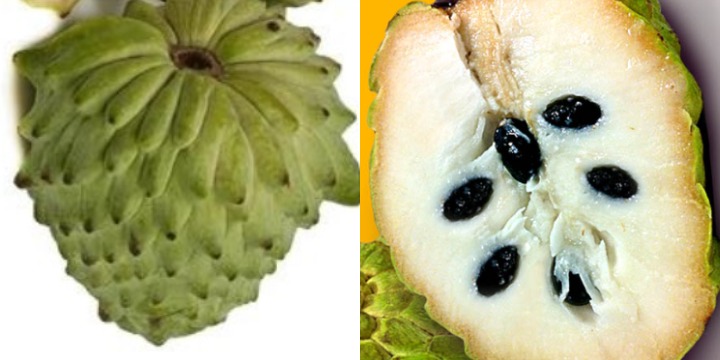Atemoya and soursop are two tropical fruits that captivate taste buds with their unique flavors and offer a range of health benefits. Though they belong to the same family, Annonaceae, and share some similarities, they have distinct characteristics that set them apart. Let’s explore the fascinating world of atemoya and soursop, delving into their origins, nutritional profiles, health benefits, and culinary uses.
Comparing Atemoya and Soursop: Differences and Similarities
Atemoya is a hybrid fruit, a cross between the cherimoya and the sugar apple. It is native to South America but is now grown in various tropical and subtropical regions around the world. The fruit has a conical or heart shape with a green, bumpy skin. Inside, the flesh is creamy white, soft, and custard-like, with a sweet and slightly tangy flavor that combines the tastes of both parent fruits.
Soursop, also known as graviola or guanabana, is native to the tropical regions of the Americas and the Caribbean. The fruit is large, oval or heart-shaped, with a dark green, spiky skin. The inner flesh is juicy, fibrous, and white, with a distinctive tart and sweet flavor that resembles a combination of strawberry and pineapple with citrus notes.
Nutritional Profiles
Both atemoya and soursop are packed with essential nutrients that contribute to a healthy diet.
Atemoya:
- Rich in vitamins: Contains high levels of vitamin C, which supports the immune system and promotes skin health. It also provides vitamin B6, which is important for brain health.
- Minerals: Offers a good amount of potassium, essential for heart health, and magnesium, which supports muscle and nerve function.
- Fiber: High in dietary fiber, which aids digestion and helps maintain a healthy weight.
Soursop:
- Vitamins and minerals: Loaded with vitamin C, B vitamins (such as thiamin, riboflavin, and niacin), and minerals like potassium, magnesium, and iron.
- Antioxidants: Contains powerful antioxidants, including acetogenins, which have been studied for their potential anti-cancer properties.
- Fiber: Provides dietary fiber that supports digestive health and helps regulate blood sugar levels.
Health Benefits
The nutritional profiles of atemoya and soursop contribute to their numerous health benefits.
Atemoya:
- Boosts Immunity: High vitamin C content helps strengthen the immune system, protecting against infections and illnesses.
- Supports Heart Health: Potassium helps regulate blood pressure and heart function, while dietary fiber aids in maintaining healthy cholesterol levels.
- Enhances Brain Function: Vitamin B6 is essential for cognitive development and function, supporting overall brain health.
Soursop:
- Anti-Inflammatory Properties: Contains compounds that may reduce inflammation, benefiting conditions like arthritis and asthma.
- Cancer-Fighting Potential: Acetogenins and other antioxidants in soursop have shown promise in inhibiting the growth of cancer cells in some studies.
- Digestive Health: High fiber content aids digestion, prevents constipation, and promotes a healthy gut microbiome.
Culinary Uses
Atemoya and soursop are versatile fruits that can be enjoyed in various culinary applications.
Atemoya:
- Fresh Consumption: The sweet and creamy flesh can be eaten fresh, scooped out with a spoon, or added to fruit salads.
- Smoothies and Desserts: Blends well into smoothies, ice creams, and custards, offering a rich and tropical flavor.
- Baking: Can be used in baking, adding moisture and sweetness to cakes and pastries.
Soursop:
- Juices and Smoothies: The tart and sweet flavor makes it an excellent base for refreshing juices and smoothies.
- Desserts: Used in ice creams, sorbets, and puddings for its unique flavor and creamy texture.
- Teas and Infusions: Soursop leaves are often used to make herbal teas, believed to have various health benefits.
Atemoya and soursop are tropical delights that offer a delicious taste experience along with numerous health benefits. Whether you enjoy the creamy sweetness of atemoya or the tart and juicy flavor of soursop, incorporating these fruits into your diet can provide essential nutrients and support overall health. From fresh consumption to smoothies and desserts, the culinary possibilities are endless. So, the next time you come across these exotic fruits, don’t hesitate to indulge in their tropical goodness.


